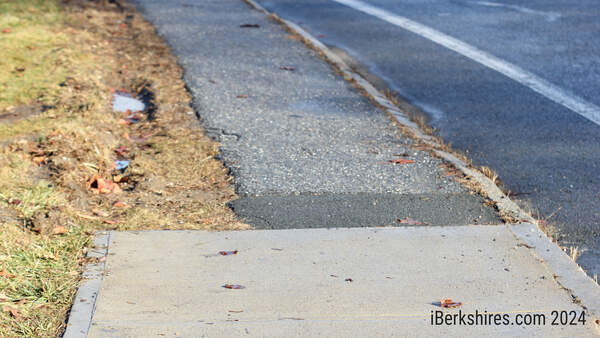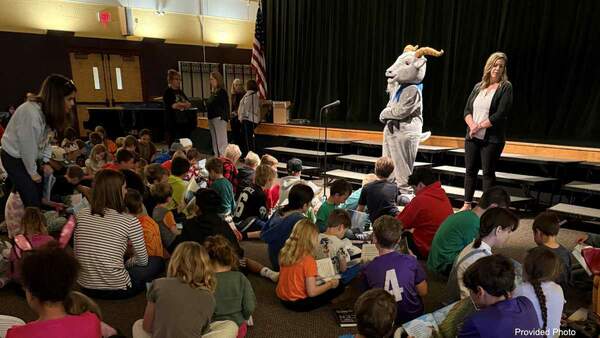Opera Singer Expands Repertoire With WTF Performance
 Opera singer Renee Fleming is making her theater debut at Williamstown Theatre Festival in 'Living on Love.' Opera singer Renee Fleming is making her theater debut at Williamstown Theatre Festival in 'Living on Love.' |
WILLIAMSTOWN, Mass. — Renee Fleming is preparing for a trio of firsts this summer.
"It's my first time in Williamstown, my first time with the WTF as well as my first time performing in a non-musical production," the world renowned soprano said during a recent interview at the Williams Inn.
"I want to be busy, to be challenged."
The native New Yorker's wish will be granted as she makes her acting debut in the Williamstown Theatre Festival's premiere of "Living on Love," which will be presented on the Main Stage from July 16 through July 26.
A comedy by two-time Tony Award winner Joe Di Pietro and adapted from "Peccadilo" by the revered Garson Kanin, "Living on Love" is set in the 1950s and follows a battle of love and autobiographical ghostwriting between an operatic couple.
"It's very exciting to be in the '50s. Anything in the 20th century is rare for me," said Fleming, who has been an opera singer for more than 25 years.
Fleming plays opera diva Raquel De Angelis whose maestro husband, Vito De Angelis (played by Douglas Sills), is enamored with the lovely young lady (played by Anna Chlumsky) who is ghostwriting his autobiography. Raquel retaliates by hiring a handsome young man (played by Justin Long) to ghostwrite a book about her life as well.
Rehearsals began daily on June 14, but Fleming needed to be elsewhere on July 5: the versatile singer opened the Boston Symphony Orchestra’s season at Tanglewood, where her performance included great works of the opera, stage and theater, plus popular genre songs.
Fleming, now 55, was a professional jazz singer in her younger years.
"I fell in love with jazz when I was a student at the Crane School of Music at SUNY Potsdam," she said. "I got a big-band job, which led to an engagement with a jazz trio. We performed every Sunday night for 2 1/2 years, and also went out on tour. I found it a fantastic release after spending the week working intensely on technique, focusing on my breath and resonance in the studio."
"Jazz is incredibly interactive and every performance is different. It gave me the freedom to experiment vocally, in front of an audience. When improvising in a jazz piece, I found I was singing notes never reached in my classical repertoire, mostly because I just didn't know what they were, until another musician told me."
"Those jazz gigs helped me conquer another fear, because, as vocalist, the patter between songs was my responsibility. Learning to talk to an audience was a skill had never realized I would need," she continued. "It remains an important part of every recital I perform now."
What Fleming finds most satisfying as a singer is the audience's reaction to a performance.
"If everything is going right, there are moments in a performance when the audience is absolutely still and silent, single-mindedly focused on the music you are making. It doesn’t happen at every performance, but when it does, I feel a tremendous surge of gratitude. I know I've reached the audience, and that I can take them where my imagination leads me," said Fleming, who has been described as one of the world's greatest opera singers.
Unlike many performers, Fleming does not rely on superstitious rituals to ensure performing well.
"I have always had a kind of coping mechanism, a sort of bargain with myself that if I suffer enough in advance, then I can perform well. Once I'm on stage, I'm always comfortable, but the few days before a high-pressure engagement can be truly nerve-wracking," she said.
Shattering the stereotype of an opera star as lofty, self-important and inaccessible, Fleming is gracious and unassuming.
But she does realize her voice is a precious instrument that must be protected.
"I avoid restaurants, because I can't speak above the noise," she said. And for a period of time before she is scheduled to sing on stage, she is silent.
Asked if she is emotionally drained as well as physically exhausted after a performance, Fleming replied that "singing classical music, especially opera, really is an athletic endeavor. I think of opera singers as the Olympians, or power-lifters, of singing. We're the only singers who are totally unamplified anymore, and being heard over a full orchestra takes significant strength. So there's no doubt that I can be physically exhausted by an opera performance."
Fleming went on to say that being emotionally drained is a hazard of the soprano operatic repertoire.
"We tend to suffer and die, in a range of awful ways. You can't phone those feelings in, and it can take a toll," she said. "There's no way to convey the fragility and suffering of Blanche DuBos (in "Streetcar Named Desire") for instance, without investing your heart in the character."
Enacting a non-musical role is "exciting, an adventure," she said.
"As a performer, I consider myself a lifelong student, and I always need new challenges," said Fleming, who speaks nine languages, has learned approximately 50 operas, and has performed on more than 30 notable opera stages around the world.
"I hope to find and exercise some new performing muscles, and learn more about conveying a character with my speaking voice, rather than singing," she said. "It really is a different discipline, and I am fortunate to be able to explore it with such brilliant actors in such a creative and supportive setting as the Williamstown Theatre Festival."
Tags: celebrity, local theater, opera, WTF,
 Opera singer Renee Fleming is making her theater debut at Williamstown Theatre Festival in 'Living on Love.'
Opera singer Renee Fleming is making her theater debut at Williamstown Theatre Festival in 'Living on Love.'














